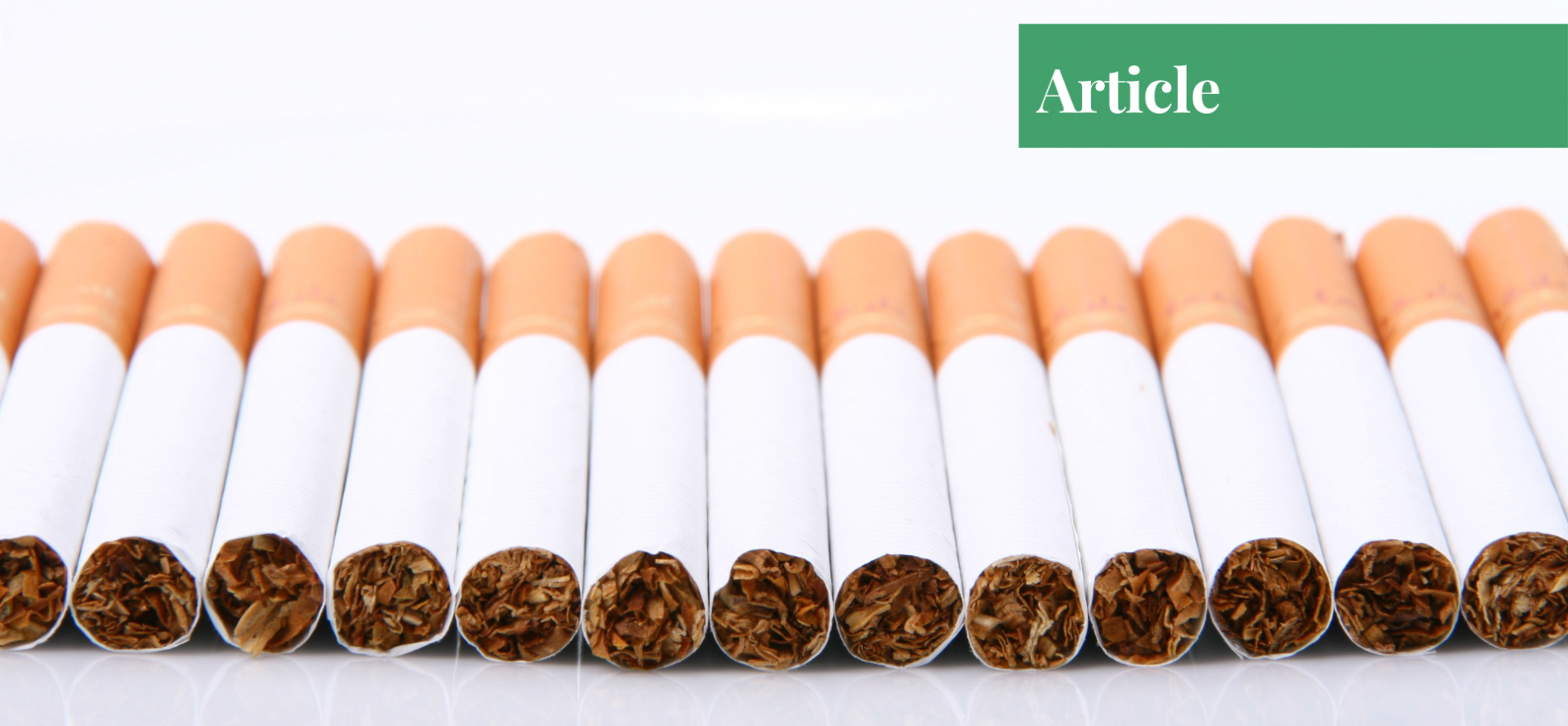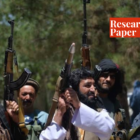Ms Aimen Babur is a Mechatronics engineer turned development enthusiast. She is currently working as a project assistant at the Sustainable Development Policy Institute (SDPI). Through her research, she aspires to give a voice to the youth and other marginalized communities of society.
The Tobacco Pandemic
With the allegations of a rigged bidding process by companies, it is quite clear that the tobacco fiasco is far from over for Pakistan. Tobacco is a highly lethal and addictive substance that endangers millions of lives every year. Consumed in any form, excessive use of tobacco results in substantial economic and social losses across the globe.
World Health Organization (WHO) asserts that smoking alone causes around 8 million causalities annually which includes 1.2 million non-smokers as well. Although the situation of excessive tobacco consumption is not promising for all Asian countries, Pakistan presents unique challenges in terms of its curtailment.
As per the World Bank report of 2019, Pakistan is included amongst the countries with the highest prevalence of tobacco consumption. Owing to numerous structural issues and governance problems, Pakistan is included among the worst victims of tobacco trade by industrial sources, thereby exacerbating the social and economic implications of the tobacco epidemic.
Tobacco Companies and Their Illicit Trade
Despite numerous efforts by the local and international institutes, the harrowing effects of increased tobacco consumption could not be curtailed as anticipated. In this context, the alleged influence of tobacco companies in Pakistan is one of the prime factors which undermines the effectiveness of any tobacco control campaign planned for the benefit of the masses.
The tobacco companies are often found involved in various schemes intended to demand tax relaxations from governments. Apparently, the tobacco lobby uses its connections to bend the public policies in its favor through statistical exaggerations and false case studies. A classic example of this influence is the overemphasis on illicit trade as one of the factors exacerbating the health and economic implications for the state.
Oxford Economics and other international institutes claimed in their reports that the percentage of illicit tobacco trade was as high as 41.9% in Pakistan in 2017. Upon close inspection, these reports often funded or inspired by tobacco companies were full of contradictory facts and questionable methodologies.
According to the official survey conducted by the Pakistan National Heart Association, the volume of illicit trade is not more than 9% which suggests that the official production figures quoted by the tobacco industry are highly inflated. The World Bank Group has also reported in 2019 that the tobacco proponents have created a false impression of massive illegal trade in Pakistan for the purpose of demanding tax evasions from the government.
Through their coordinated ploy, not only have they succeeded in acquiring tax relaxations but they have also managed to evade taxes through illegitimate means. More often than not, the major tobacco firms are found involved in smuggling tobacco products due to the local weak legislative structure.
The growing evidence suggests that tobacco tycoons facilitate the black market, causing a revenue loss of around Rs. 70 billion to the state exchequer. Therefore, in order to put an end to these conniving tactics employed by tobacco companies, the Government of Pakistan decided to introduce the track and trace system.
The Track and Trace System
The tracking and tracing of tobacco products, as proposed by WHO, is an effective technique that aims to tackle the illegal tobacco markets. The Illicit Trade Protocols suggest that each product could be identified through its unique ID, thereby aiding the governance institutions in reaching the source of this menace and nip the evil in bud.
The Federal Board of Revenue (FBR) would be able to obtain all the details relevant to the manufacturing and taxation of each cigarette packet, thereby putting an end to illegal trade and tax evasions once and for all. While the initiative was thought of as a major step to keep the tobacco industry in check, evidence suggests that the tobacco lobby has been successful in defying the local authorities.
While the goal of dominating the accountability system for vested interests remains the same, the mechanism also shows a similar trend as to that implemented for statistical exaggeration of illicit trade. After carrying out the usual procedure, a company by the name of National Radio and Telecommunication Corporations (NRTC) was awarded the tender by FBR.
However, close inspection suggests that the company is working in coalition with Inexto which comprises the former employees of a tobacco firm. It seems that Inexto works with the Codentify track and trace system which is basically developed through funding of the tobacco industry. Despite tall claims, the leaked documents available online suggest that Inexto may not be financially independent as often portrayed by its officials.
Startling revelations have come to the surface, suggesting alleged involvement of top tobacco players in initiating the whole mechanism with ill intents. Thus, it seems that in another attempt to sabotage the protocols initiated for controlling local and international smuggling, the tobacco companies have decided to control the tracking and tracing system through their front men and companies.
Such huge revelations have not only exposed the real face of the tobacco lobby, but it has also put the entire bidding process in jeopardy. Due to the links established between NRTC and Inexto, major anti-tobacco activists have come forward to demand fresh bidding whilst ensuring the transparency of the firms involved.
The Islamabad High Court has also canceled the multi-million dollar contract after finding irregularities in the bidding process. Thus, the whole mechanism reeks of criminal negligence in selecting a company for carrying out the track and trace system for tobacco products. The current situation suggests that the story of the tobacco track and trace system implemented in the European Union is being replicated by local actors.
In the EU as well, Inexto tried to influence the bidding process before its involvement with the tobacco industry was found. Thus, these instances suggest that the Illicit Trade Protocol needs to take into account the efforts of tobacco companies to overpower the accountability process. All the stakeholders must come together to ensure that the devious attempts by the said lobby are always countered with strict compliance with rules and regulations.
The whole mechanism must be implemented with complete transparency while carrying out the bidding process so that no company with links to Inexto or Codentify is allowed to contest for the bid. Additionally, companies like Inexto must be fined heavily for their links to the tobacco industry. All the parties involved must stay vigilant so that the tobacco industry cannot find its way to the system commenced for its liability.
If you want to submit your articles and/or research papers, please check the Submissions page.
The views and opinions expressed in this article/paper are the author’s own and do not necessarily reflect the editorial position of Paradigm Shift.



















